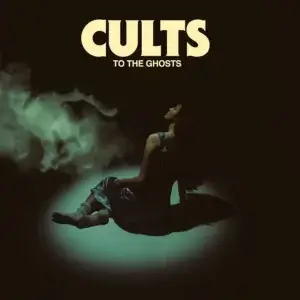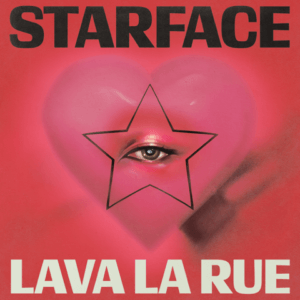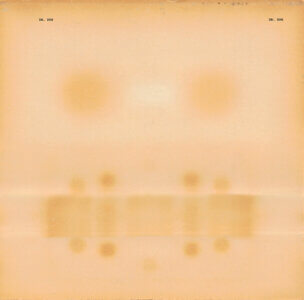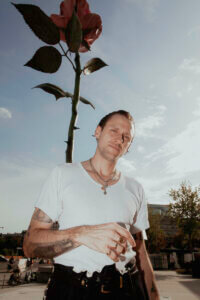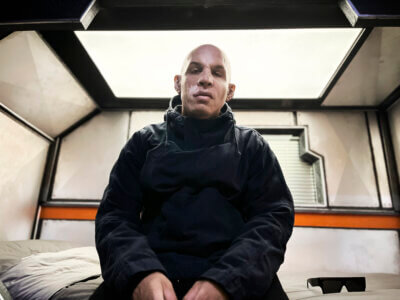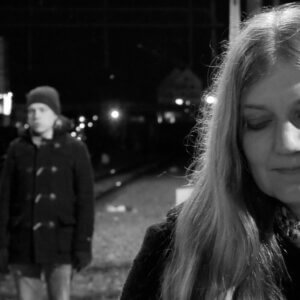Sally Shapiro Do It Better

If there’s one thing Sally Shapiro is known for, it’s being unknowable, at least in theory. The vocalist for her eponymous Italo disco and synth-pop project with collaborator Johan Agebjörn, Shapiro operates under a pseudonym and doesn’t perform live. That she agreed to an interview was a bit of a surprise. That she requested keeping our webcams off wasn't. But you don’t have to see Shapiro to feel her presence. On record, her enchanting vocals weave through Agebjörn’s skittering rhythms and neon melodies, their colorful tones blending together like paints on a canvas. In conversation, she and Agebjörn’s chemistry comes through even further, two creators combining their differing inspirations to make something beautiful together.
The two have plenty to talk about now, as their newest album, Sad Cities, their first release on Johnny Jewel’s Italians Do It Better label, is also their first album since announcing their breakup in 2016. Farewell single “If You Ever Wanna Change Your Mind” was released that same year. While not explicitly about the project being revived, it does carry a sense that Sally Shapiro, the project, wasn’t completely finished. And listening to Sad Cities, it sounds like she and Agebjörn have left. I spoke with Shapiro and Agebjörn about their reunion and perspectives on music and life beyond it.
This interview had been edited and condensed for clarity
Northern Transmissions: Why did you decide to return to making music?
Johan Agebjörn: I think the difficult question is why we stopped in 2016. I think the reason for that was that we were in a period where our musical tastes weren’t overlapping so much. I was more into abstract electronic music and trance music, and Sally was more into pop music.
Sally Shapiro: More melodic, so we differed quite a lot then, more than we did before, in our musical tastes. So then, we decided to end the project.
NT: Did you think that was it completely finished, or were you open to the possibility of a return?
SS: We were really thinking that we wouldn’t do anything more together, because it didn’t feel like that. We were thinking about it when we ended, and it was quite a relief then to decide not to do anything more, because then also the pressure went away, the questions and so on.
JA: We always got these questions, “When are you gonna release a new album?” and so on. But then, after a few years, we had some moments of musical inspiration. We continued to be friends. It felt like, “Why did we end this project? Of course we should do music.”
NT: Do you remember when you knew that you’d be making a new album?
JA: We did this track, “Forget About You,” and first it was a collaboration track with Italo disco singer Ryan Paris. When we did that, I was really inspired. Sally was there more as a guest vocalist, and you did it so well, Sally. So, I felt “Wow, we should do more again.”
NT: Listening to the album, it sounds like you haven’t been away for that long. Were you looking to keep that sound, or were you considering going in different directions?
SS: We wanted to keep that sound, and now we were inspired to do that kind of music. Maybe that was needed because back then, when we decided not to make more music it was because we were differing a lot. And this kind of music is our common denominator.
JA: That’s where we overlap. And at the same time, we want to make things a bit different. And some of the tracks are maybe a bit new for us in terms of sound. Like “Million Ways,” which is more Italo house-inspired, and the last track, “Fading Away,” is a bit synthwave-inspired.
NT: You’re coming back at a time when these sounds are really still prominent in all kinds of genres and subgenres, even on the top radio songs. Are you surprised that these kinds of sounds are so timeless?
JA: In some way, I am. When we started this project, Italo disco was a very odd thing to listen to. 70s disco had been there for a while, like a revival, but not this kind of cheesy 80s disco. And now, it’s like our project doesn’t feel controversial or odd now, I think, anymore. And that’s quite interesting.
NT: A lot of the discourse around the project was about your anonymity and not touring or performing. Do you think people made too big of a deal out of that?
SS: [laughs] I am a bit surprised, maybe, that is so important. I was a bit surprised there was going to be such a big focus on that. Because I thought it was more like, “Well, some people perform and some people don’t.” It was flattering to get the questions, because I didn’t want to do that. But now, I am more grounded in the tradition.
NT: How did the last few years influence this album, if at all?
JA: One thing is the title, Sad Cities, and the song, “Sad Cities” is about wanting to leave a city because you’re tired of it. We thought Sad Cities was quite a good title in a pandemic, because the cities have been kind of sad and closed. Apart from that, I don’t think we have felt so very affected, since we don’t tour anyway. And our day jobs that we have haven’t changed so much. I’m more sad that the vinyl industry has been affected because there’s been a shortage of some chemicals. So, the vinyl version of this album won’t be released until the fall or something.
NT: Can you share about your day jobs?
JA: I can tell you what I do. Sally is more private [both laugh]. I’m a psychologist, so I have patients.
NT: Do they know you make music?
JA: Yeah, some of them Google me. I think that’s quite a common thing to do when you’re going into therapy.
SS: And I’m merely recognized. During all these years, it has just been a few times that people have noticed.
NT: Like, they recognize your face?
SS: Yeah, if they are Sally Shapiro fans they recognize me. But otherwise, most people don’t.
NT: How do you feel when that happens?
SS: Well, I’m always surprised but since they recognize me they like the music, because otherwise you don’t. And therefore, it’s mostly a nice thing.
NT: How did you get involved with Italians Do It Better?
JA: I’ve been a fan of Johnny Jewel’s different projects for a lot of years, and I had some contact with him in 2007 or something when I did a remix for Glass Candy. And then, when we were making this album, I emailed him and asked if he was into co-producing some tracks. After a while, I got a reply and we started discussing the possibility of releasing the album on Italians Do it Better.
As it happened, Johnny Jewel and I mixed the album together, and he also helped out with some drum sounds on a few tracks. So, the original idea was more to ask if he wanted to produce something. But then, it turned out to be a great place for the music. Their listeners are very like-minded, as we are. So in that way, it’s a really good output for the music. And we enjoy working with them.
NT: Did you get any particular insights from Johnny about mixing?
JA: One thing that I learned was that it’s okay to have the drums quite loud, because when you master the track they are, like, pushed together. That was something I hadn’t really thought about. Often, his mixing suggestion has been to bring up Sally and bring up the drums and to not have so many percussion sounds in the same frequency as Sally, like hi-hats, which is a drum sound that I really like. But I have often lowered them a bit to make more space for Sally.
NT: Do your musical tastes gravitate in a particular way or is there generally a pretty big variety?
SS: Yes, a little bit, this but also other kinds of stuff. And I think that is where we differ a bit, but we both like this kind of music. But then I’m also into more indie pop and melodic music and singer-songwriters and stuff like that.
JA: I like mostly electronic music, like ambient music and the Italo disco, of course, and a bit of techno, but mostly older techno from the 90s, also a bit of classical music, like Chopin and DeBussy, also a bit of neoclassical as well.
NT: How do you decide how to sing a song?
SS: We [work] with it a little bit before, and I have a feeling. And maybe I want to be alone because I want to enter that feeling in my head. And then, I just sing it. I’m just trying to get the feeling of the song first in my head, and then I just sing it.
NT: Is it kind of like you’re an actor getting into character?
SS: No, more that I am grabbing that feeling inside of me. I would say that every song has a bit of myself in it. But then maybe, I’m not in that feeling just in the moment when I’m supposed to record. So, then, I have to grab the feeling that fits the song for like a moment before I start so I can find it inside of me and get that feeling up in the air.
NT: Do you feel like your personalities have changed in any major way since the project was last active?
SS: Well, we’ve grown a bit older [laughs]. I definitely don’t feel so different now.
JA: I think I’m a bit more stable [laughs]. I hope. And on the lyrics, you maybe can notice [it’s] a bit different compared to the first album. Maybe they’re more mature in some way.
NT: Do you expect to release more music anytime soon?
JA: Not in the near future. Usually, the inspiration comes back after a while. So, let’s hope that! [laughs].
SS: We’re not saying that this is our last stuff. It feels like we will make [some] more. But if it’s going to be just one thing or more, we don’t know yet. But it feels like we’re going to make something more.
Pre-Order Sad Cities by Sally Shapiro available February 18, 2022 HERE
Latest Reviews
Tracks
Advertisement
Looking for something new to listen to?
Sign up to our all-new newsletter for top-notch reviews, news, videos and playlists.


